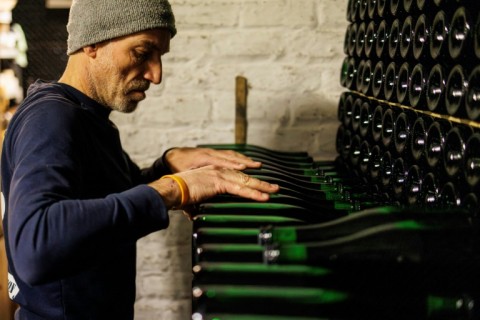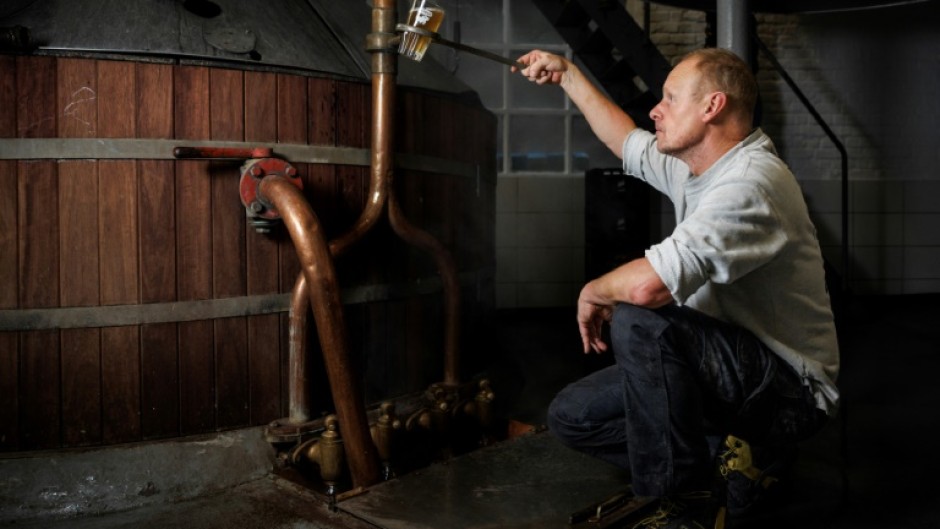BRUSSELS - Winding between copper vats and oak barrels, a cluster of early-morning visitors filed through a cavernous Brussels building for an up-close peek at craft beers brewed using a centuries-old method -- before sampling the result.
Since it was founded in 1900 in Anderlecht, a working-class district of the Belgian capital, Brasserie Cantillon has been turning out so-called primitive "lambic" beers that are steeped in local tradition.
What makes lambics special is they start with a process known as spontaneous fermentation -- through exposure to wild yeasts, specifically those native to Belgium's Zenne valley -- as opposed to cultivated brewer's yeast.
Aged in wood barrels for months to years, which allows for a secondary fermentation to occur as the beer's sugars convert to carbon dioxide, the result is a distinctive dry beer with a faintly tart aftertaste.
Cantillon's speciality is an even more niche type of beer known as "gueuze" -- a blend of lambics from different years and whose fruity varieties include kriek, or cherry in Flemish -- that has around 20 brewers in Belgium.

Morello cherry, haskap, elderberry flower: the brewery uses a whole palette of fruity aromas for its gueuze beers, adding them at the secondary fermentation stage.
"Lambic is what comes closest to primitive beer -- the kind that was made before Louis Pasteur and microbiologists discovered how yeast works in the second half of the 19th century," explained one of Cantillon's co-owners, Jean-Pierre Van Roy.
Compared to the 6.5 million hectolitres of beer imbibed in Belgium last year, Cantillon's output is a mere drop, with an annual 2,500 hectolitres (55,00 UK gallons) produced on average. Two-thirds of that are sold abroad.
Together with his wife Claude Cantillon, granddaughter of the brewery's founder Paul Cantillon, the couple remain majority stakeholders in the family business while the day to day is handled by their three children.
John Gallagher, an Irish academic based in Leeds in northern England, inherited his taste for Belgian brewing from a well-travelled uncle.
"These are beers rooted in a 'terroir,'" he said approvingly as he sipped from a red fruit variety, using the French term designating the particular mix of soil, climate and culture that feeds a product's character.
"That's what gives them such a reputation with beer lovers," Gallagher said. "In England, traditional methods have been long lost."

